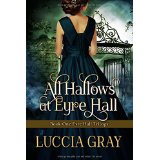
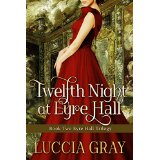
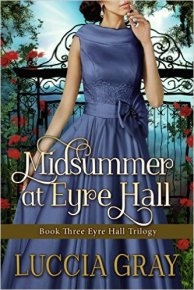
As an ex-English teacher and lover of classic literature, it’s always a delight when a series comes along that enhances my reading experience. I’ve loved Luccia Gray’s follow up to Charlotte Bronte’s Jane Eyre and am so pleased that Luccia has agreed to be interviewed for Linda’s Book Bag today. What could be better on the 200th anniversary of Charlotte Bronte’s birth?
You can read my review of All Hallows at Eyre Hall here and of Twelfth Night at Eyre Hall here (although the giveaway associated with that post is now finished, read on for some exciting news from Luccia!)
Hello Luccia. Thank you so much for agreeing to answer some questions on my blog about your Eyre Hall Trilogy.
Hi Linda, thank you for this opportunity to tell your readers about myself and my books.
Firstly, please could you tell readers a little about yourself?
I was born and brought up in London and graduated in modern foreign languages from London University. I speak Spanish, French and Italian. I live in the south of Spain with my husband and I have three children and three grandchildren. When I’m not reading or writing, I teach English at an Adult Education Centre and the Spanish Distance University.
Please would you introduce your Eyre Hall Trilogy to those who haven’t read any of the books yet?
The Eyre Hall Trilogy is the sequel to Charlotte Bronte’s Jane Eyre. I have picked up the story twenty-two years after Jane’s marriage to Mr. Rochester, while he is on his deathbed. They are living at Eyre Hall, which Jane built with her uncle’s inheritance, on the same spot Thornfield Hall had stood, before it was burnt down. Richard Mason, Mr. Rochester’s brother-in-law, who interrupted Mr. Rochester’s first bigamous marriage attempt, returns once more from Jamaica, to reveal more of Rochester’s secrets and turn Jane’s world upside down.
What was it about Charlotte Bronte’s Jane Eyre that so compelled you to write a sequel?
I fell in love with Mr. Rochester, as most readers did, when I first read Jane Eyre as a teenager. It soon became my favourite novel.
About thirty years later, I read the prequel, Wide Sargasso Sea, by Jean Rhys. This short, but intense novel, which was written in the 1960s, tells the story of Bertha Mason in three parts: her childhood, before she met Mr. Rochester, their first meeting and arranged marriage and first four years of matrimony, and finally her death at Thornfield Hall. After reading Wide Sargasso Sea, it’s impossible not to reread Jane Eyre with new insight and perspective.
Finally, when I taught Postcolonial Literature at the University of Córdoba, one of the topics on the syllabus was a comparison of Jane Eyre and Wide Sargasso Sea, and that really sparked classroom discussion and my imagination. I later gave a talk at the University of Málaga on ‘Sexuality and Gender Relations in Jane Eyre and Wide Sargasso Sea’, which has been published in 2015 by Lexington Books.
The idea of reinstating the first Mrs. Rochester, Bertha Mason, had been nagging at me for a long time. I had jotted lots of ideas, but it wasn’t until the summer of 2013 that I decided to put pen to paper and give Bertha back her place by bringing her daughter to life.
Are you as interested in the Brontes in general as you are in Jane Eyre?
I’m interested in all Victorian writers, especially the Bronte’s, Dickens and Wilkie Collins. Many of them, as well as their literary creations, appear as characters in my novels.
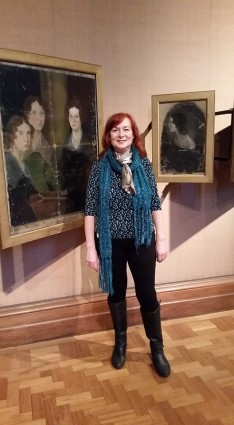
How has your role as a teacher impacted on how you’ve written the Eyre Hall Trilogy?
I don’t think I would have written the Eyre Hall Trilogy if I hadn’t taught Postcolonial Literature to Undergraduates. I had wanted to write a novel for many years, and I’d even dabbled at writing fiction, but analysing Bertha Mason and Jane Eyre in greater detail, discussing it with my students and colleagues, and writing a research paper, gave me the final push.
You don’t always present Rochester or Jane in a favourable light. How have readers responded to this?
Funny you should ask. I was recently asked by friends if I got ‘hate mail’. Fortunately, I don’t, but it wouldn’t bother me. I’ve been a teacher for over thirty years, most of them teaching adolescents, so I can cope with criticism, even if its ‘unreasonable’ or ‘exaggerated’! I have received a few negative reviews due to my supposedly unfair treatment of Mr. Rochester, and that’s fair enough. I have my views, which are based on literary analysis, and careful thought. I don’t expect everyone to agree with me or like my creative reinterpretation of Jane Eyre. You can’t please everyone, and quite honestly, there’s no point in trying or worrying about it.
What has been the most challenging element of writing a sequel to one of the world’s most popular novels?
I’m an independent author. No publisher or agent has officially backed me, so when I published my first novel, I felt very insecure. I was terrified of my novel not being professional enough. It took me almost a year after finishing it before I published. I spent this time learning about indie publishing, finding beta readers, a book designer, an editor, dong some marketing on social media, etc. I’m now confident that my novel is as professional as any other which is available for purchase, of course that doesn’t mean everyone has to like it.
I take criticism humbly, fully aware that I’m not in the same league as Charlotte Bronte. I’m using her characters and part of her plots to write a sequel, which I hope will be appealing to read for modern audiences.
I consider my novels as a tribute to Charlotte Bronte and many other Victorian writers, who have inspired me with their literary mastery.
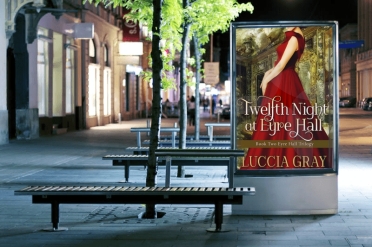
How did you ensure period authenticity whilst still appealing to the modern reader?
I think most modern readers don’t have the time or the patience to read authentic Victorian Literature. There’s too much telling, too much description, too much detail, it’s fixed in a specific historical time-frame, and it’s aimed at a specific mind-set. That doesn’t mean it’s irrelevant to contemporary readers, but it does need to be adapted. I don’t think this adaptation is a question of language, but of style and content.
Modern readers need more and faster action, and more conciseness in the prose. They read novels in fewer sittings, so they don’t forget plot or characters between readings (many Victorian novels were read in weekly instalments over months).
Modern readers also need to be immersed and understand things that Victorians took for granted. Victorian readers knew things about their own lives that contemporary readers don’t know or have forgotten. For example a horse and carriage could only ride about 40-50 miles a day, lack of indoor plumbing, use of candles instead of electric lights, layers of clothing, etc. This type of detail has to come across subtly in the narrative for a modern audience.
I know the third novel in the Eyre Hall Trilogy is due out soon. Without spoiling the plot, can you give us a hint of what is to come?
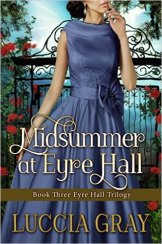
Yes, Midsummer at Eyre Hall, the final part of The Eyre Hall Trilogy is now in the beta reading and editing stage. It is now available for pre-order on kindle. It will be published on 21st June, Midsummer’s Day.
The first part of Midsummer at Eyre Hall is very dramatic and action-packed. Jane will find herself in completely unexpected and dreadful circumstances, which neither she, nor the reader would ever imagine, so I can’t say much more! The second part begins to show some improvement in her situation and contains more surprises, including two new characters, who will drastically change Jane’s life forever. The third part will disclose one more final and unexpected twist, which will restore stability to her life. I hope the reader will find the end is satisfactory, although it’s happier for some characters than for others…
There have been so many adaptations of Jane Eyre for stage and screen, who would you choose to portray Jane if your trilogy were to be turned into a film and why would you choose them?
I love this question! I hate it when Jane is portrayed as excessively meek and naïve. I believe she had much more character than most film producers and directors imagine. Readers sometimes forget she was top of her class at Lowood, excelling in all subjects. She was independent, hard-working, honest, reliable, and very principled. She’d had a very hard life and had managed to overcome all the obstacles without self-pity. She was only 19 when she married Mr. Rochester. I’m sure she would have become a self-assured, attractive and imposing lady, in spite of her tiny height!
My favourite actress to play my mature Jane Eyre is Rachel Weisz, because she’s striking, but not too beautiful, she looks intelligent, kind, caring, strong-willed, and confident.
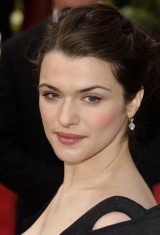
Do you have your eye on any other classic novels for a continuation?
I’d love to write a prequel to Rebecca. I’ve already started it actually, but it’s a bit of a secret right now! I may finish it, but I’m not sure at the moment. I’d like to write some contemporary fiction first.
Which of your characters would you most like to be and why?
I wouldn’t like to be any of my characters. I purposefully wrote about a place, time and people I don’t feel personally identified with. However, I dream about them, talk to them, and love them all, even the villains! I try to walk in their shoes, which is why I write using the rotating first person narrative.
If you had 15 words to persuade a reader that the Eyre Hall Trilogy should be their next read, what would you say?
It’s a well-written historical romance. The characters are absorbing, and the plot is suspenseful and exciting.
By the way they’re both on Kindle Countdown Deals this week at 0.99!
(Click here for All Hallows at Eyre Hall and here for Twelfth Night at Eyre Hall)
Thanks so much for being on Linda’s Book Bag today Luccia. I’ve really enjoyed interviewing you about your Eyre Hall trilogy.
Thank you so much for this interview, Linda. It’s been a pleasure visiting your literary blog, which is so helpful for readers, who can find their next favourite book, and writers, who can spread the news about their novels.
Thanks Luccia! And a final word from you:
If anyone is interested in reading an ARCs of Midsummer at Eyre Hall, please let me know in the comments or email me at luccia.gray@gmail.com
*** I’d also like to gift a paperback of All Hallows at Eyre Hall and Twelfth Night at Eyre Hall to two readers of Linda’s blog. Please email me, telling me which of the two you’d like to receive and why you’d like to read the novel. ***
About Luccia Gray
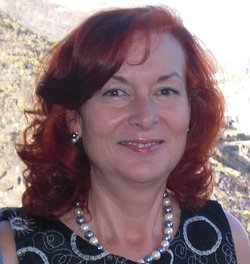
Luccia Gray was born in London and now lives in the south of Spain with her husband. She has three children and three grandchildren. When she’s not reading or writing, she teaches English at an Adult Education Centre and at the Spanish National University.
If you’d like to find out more about Luccia Gray and this wonderful series, here are the author links you need:
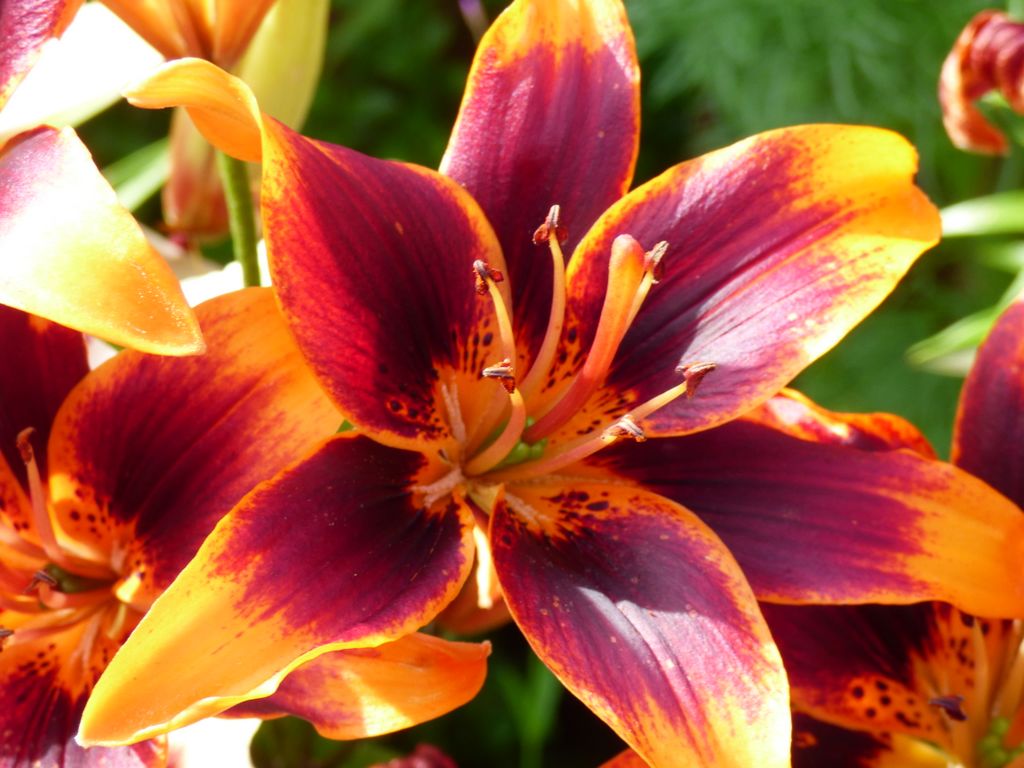
I have All Hallows on my kindle ready to read – I totally fell in love with the beautiful cover. Think I need to bump it up the reading list! Lovely post ladies x
LikeLike
Thanks Shelley. These are such interesting follow ups and give a totally different perspective to Jane and Rochester.
LikeLiked by 2 people
Fascinating interview, Linda. I love the sound of Luccia’s novels (right up my street) – and this one is so timely! I have always wondered what might have happened next – and i never found either Jane or Rochester to be entirely sympathetic?!
LikeLiked by 1 person
Thanks for taking the time to visit and comment Annabel. I think Luccia has created a very interesting series and can’t wait to read the final installment.
LikeLiked by 1 person
Pre-ordered!! 🙂 Though I still have to get to the second of the trilogy I thoroughly enjoyed the first one. Great interview, I love finding out more about my favourite people 🙂
LikeLiked by 1 person
Oh – I think you’ll enjoy it as the second is better than the first in my opinion! I can’t wait to read the last installment. Thanks for taking the time to visit and comment x
LikeLike
I really enjoyed your interview- how lovely to know that it’s not just me who is passionate about Victorian literature & the Brontes in particular! I am not usually a fan of novels that are sequels to well loved books, but am intrigued by this series & look forward to reading them- off I go to order them!
LikeLiked by 1 person
Thanks so much for taking the time to visit and comment Carrie. I think what makes this series successful for me is the time gap used so that the immediacy of the original text is less influential. I’ve thoroughly enjoyed reading more about Jane and Edward.
LikeLike
Thank you Shelley 💗
LikeLiked by 1 person
Thank you, Mary💗 Books 2 & 3 are shorter and have more action. Book 1 lays down the Jane Eyre background and introduces all the new characters and events. Hope you enjoy, whenever you have time!
LikeLike
Thank you so much for this interview. It’s a privilege to be present on your wonderful blog 💗
LikeLike
Thank you, Carrie💗
LikeLike
You’re very, very welcome. I loved having you here.
LikeLiked by 1 person
Loved your post ladies! I love Jane Eyre so am excited to find this author and her books!
LikeLiked by 1 person
Oh, you’ll love the books too then Susan. Thanks so much for taking the time to comment x
LikeLike